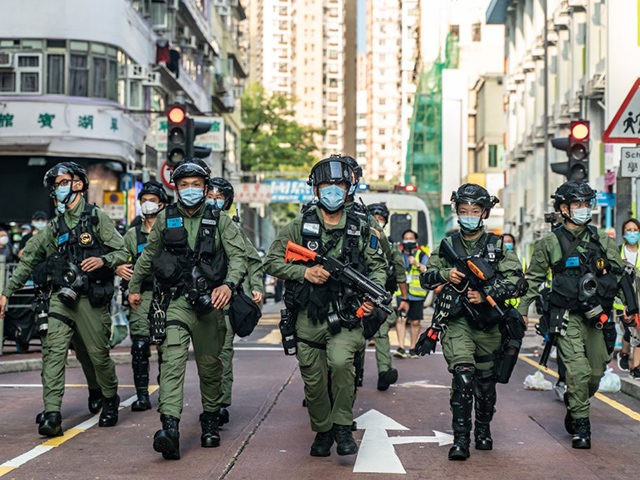The Hong Kong police established a hotline this week where residents can snitch on their neighbors for violating the “national security law” imposed on the island by the Chinese Communist Party (CCP) in June.
According to the Hong Kong Free Press (HKFP) on Thursday, the new “hotline” appears to be primarily digital in nature, although it does include a phone number where callers can leave messages:
The hotline was rolled out “with a view to facilitating members of the public to provide or report national security related information,” according to the police website.
Platforms include only WeChat, SMS and email, though the force said no-one would reply to messages and those using the line will remain anonymous. Data will be protected under the Personal Data (Privacy) Ordinance and not shared with third parties, the force added.
The hotline was promoted on police social media platforms, as the public were urged to share “information, photographs, audio or video.”
HKFP quoted democracy activist Joshua Wong warning last month that the proposed hotline would be a “threat to foreign investors and expats” because the CCP’s security law “covers foreign nationals, overseas behavior, and speeches” in addition to words and deeds on Hong Kong soil.
The BBC quoted both supporters of the Beijing-controlled Hong Kong government approving of the new hotline because it would help police “strictly enforce the law” and “bring traitors to justice,” while critics worried about the obvious potential for informants to use the system as a weapon against “people who they dislike or are in a different political camp,” as Maya Wang of Human Rights Watch put it.
Several Hong Kong democracy activists described the hotline as the sort of thing mainland China did during Mao Zedong’s brutal Cultural Revolution. Democratic Party lawmaker Lam Cheuk-ting called it “Cultural Revolution 2.0.”
“Nowadays, Hongkongers already have the feeling that one can easily get blamed for whatever one does, and that one can easily step on a political landmine. The hotline will only intensify the chilling effect in the society,” Lam warned.
The South China Morning Post (SCMP) reported on Thursday that the hotline received over a thousand “pieces of information” in its first few hours of operation, even after significant technical issues were reported on WeChat.

COMMENTS
Please let us know if you're having issues with commenting.